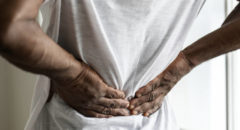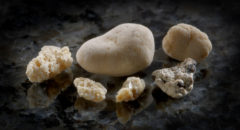
Your kidneys probably aren’t getting enough attention. Most of the 26 million American adults that have kidney disease don’t know it, and African-Americans are three times more likely to experience kidney failure.
“It’s a silent killer, it has very few symptoms, and most people find out that they have kidney disease when they’re in the emergency room and in the advanced stages of the disease,” says Anne Black, chief executive officer of the National Kidney Fund of Illinois. “And at that point, it’s either dialysis or kidney transplant in order to live.”
RELATED: 4 Steps To Clean Your Kidneys
It’s much easier to take a proactive approach toward kidney health. Here are nine ways to take better care of your kidneys, as recommended by the National Kidney Fund of Illinois:
1. Up your water intake.
Water is essential in keeping your kidneys healthy because it helps them remove waste from your body and helps blood carry nutrients to them. It also prevents kidney stones and urinary tract infections. Although an eight-glass goal is a good start, every person needs a different amount. The Institute of Medicine currently recommends 13 glasses for men and nine for women each day.
2. Watch your weight.
Weight indirectly affects your kidneys. Excess weight, especially around your waist, increases the risk of other conditions. Chronic illnesses such as diabetes and hypertension can cause chronic kidney disease.
3. Keep your blood pressure down.
One in three Americans has high blood pressure. Uncontrolled, it’s the second leading cause of kidney failure in the country. To avoid this risk, work to keep your blood pressure below 120/80.
4. Get moving.
Exercise is one effective way to reduce your blood pressure, according to researchers at the University of Maryland. A recommended 30 to 45 minutes of aerobic exercise most days can help.
RELATED: 7 Easy Ways to Prevent Kidney Stones
 5. Avoid the pain meds.
5. Avoid the pain meds.
It’s easy to reach into the medicine cabinet when we have a headache or sore muscles, but over-the-counter pain medications like ibuprofen reduce the blood flow to the kidneys. Using too much of these medicines can cause chronic kidney disease. Take them only when necessary and at the lowest dosage.
6. Pass on the extra booze.
For most people, having one or two occasional drinks won’t have any serious effects on the kidneys, but excessive drinking certainly will. One drink is defined by the Centers for Disease Control as one 12-ounce beer, one glass of wine, or one ounce (about a shot) of a hard liquor. But many people consume much more, which can cause permanent problems. Binge drinking — having more than five drinks at one time — can cause acute kidney failure, and drinking heavily too much can cause slow, long-term damage that can’t be repaired.
7. Say no to cigarettes.
Although many people usually only associate cigarettes with lung health, smoking also affects the kidneys. Smokers are more likely to have protein in their urine — a sign that the kidneys are being overworked. This is intensified if you drink and smoke. That means you are five times more likely to get chronic kidney disease than people who don’t do either.
RELATED: Is Frequent Urination A Sure Sign Of Kidney Failure?
8. Abstain from drugs.
Both prescription and recreational drugs are tough on your kidneys. Common prescriptions for drugs like antibiotics and insulin may have to be adjusted if you have kidney problems while illegal drugs like cocaine and heroin can cause damage. Even if you think it’s safe to do so, don’t take any drugs without being under the supervision of a physician.
9. Stay away from heavy metals and toxic chemicals.
If your profession requires exposure to heavy metals and toxic chemicals, beware. The kidney is the first organ to absorb this type of toxicity. If you feel you’ve feel exposed, tell your doctor so that you can get tested. The toxin can sometimes be removed so that it doesn’t cause any further problems.








